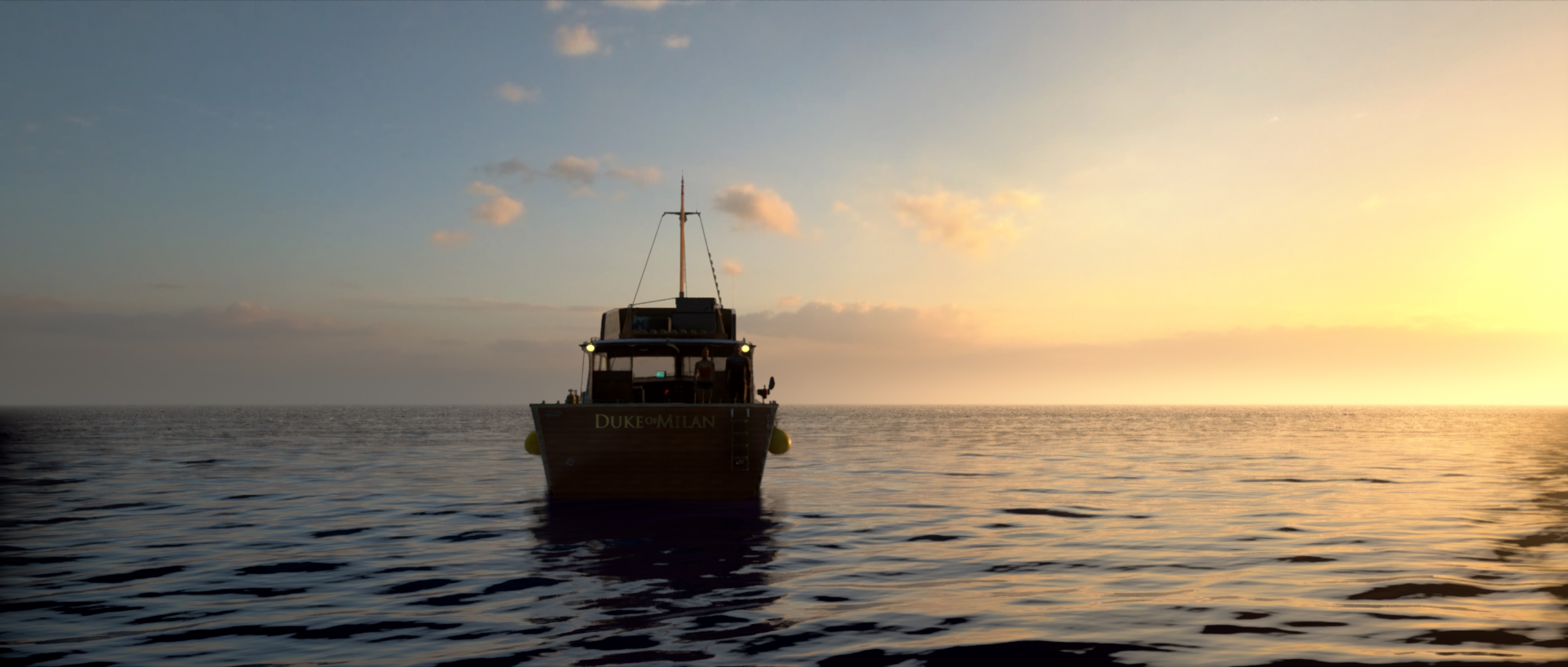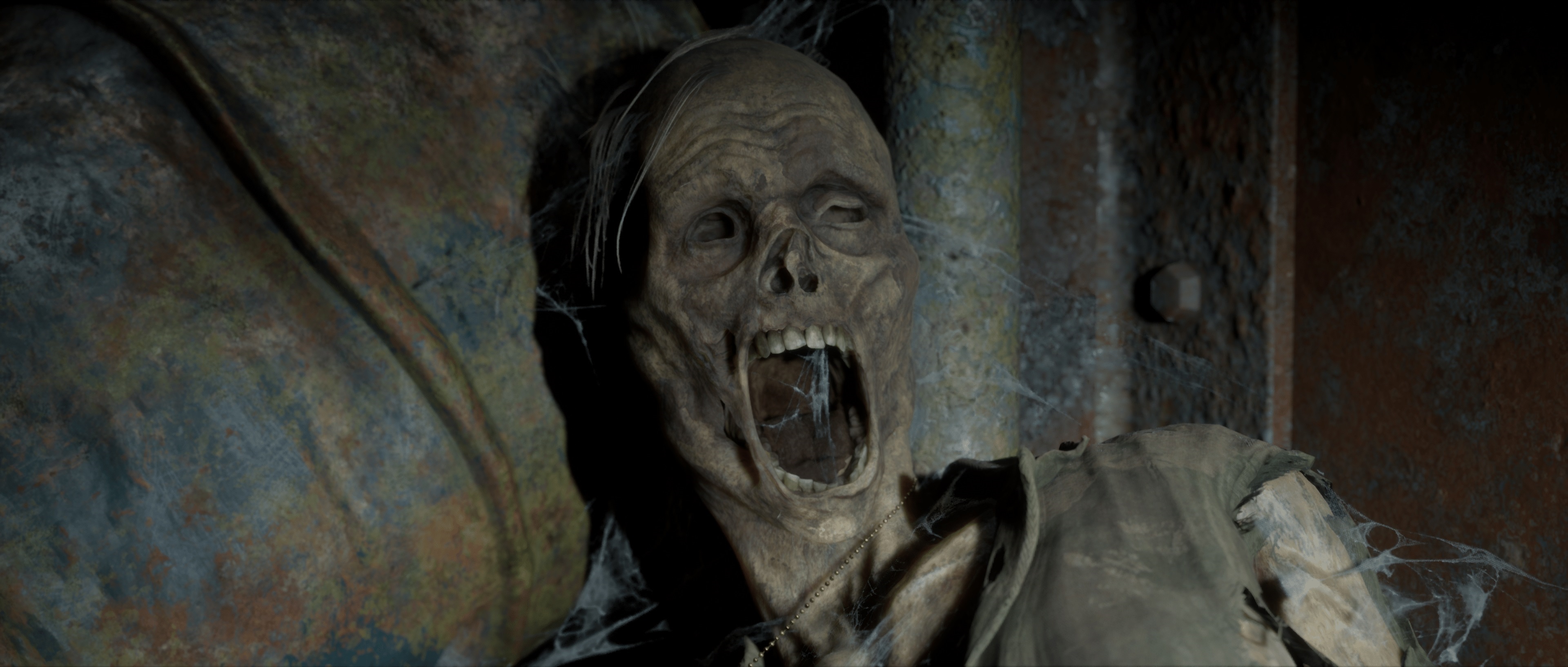Supermassive Games stylishly tackled the teen slasher with 2015’s Until Dawn and is now moving on to the open seas. As the first episode of its Dark Pictures Anthology, Man of Medan has a cast of hapless explorers discovering a seemingly abandoned vessel, only to encounter a supernatural threat upon it. But this isn’t the first story about a ghost ship. In fact, the ocean is one of humanity’s primal fears, and has inspired stories like ghost ships since time began. And by the looks of it, Man of Medan will become part of that long history.
Something about the sea is deeply troubling to the human psyche, and has inspired the dark corners of our imagination for eons. In Ancient Greece, surrounded by the less than tranquil waters of the Mediterranean, the people believed the waves were controlled by angry and vengeful gods. And beneath the waters they saw monsters of all kinds, some might lure sailors to their fate with beauty, while others might do the same with huge tentacles. While the land is static and unshifting, the waves move like they are alive, unconcerned with the tiny humans that try and sail across it. This impossibly huge and uncaring nature was the beginning of man’s primal fear of the ocean that inspired so many horrible stories.
This fear was further reinforced by our need for the ocean, coupled with our inability to survive within it. Coastal cities are so common because fishing, whaling, and trading were necessary, even though the water was cold, unforgiving, and deadly. This paradox probably didn’t help us become comfortable with the waters that surround us.
So Very, Very Alone

But the real horror stories began during the age of exploration. The long voyages between the continents meant the crews would be alone from weeks or months at a time. If a ship didn’t make its final destination, there was almost never a way of discovering what happened to it, leading many minds to wander and create horrifying tales. And without anyway of seeking help if something were to go wrong, any problem the crew faced could quickly become deadly. This unimaginable isolation, coupled with the deadly waters all around, are all reasons we find the vast sea worrisome. Whereas domestic horror stories have to find excuses for isolating the victims, normally by putting the haunted house in the middle of nowhere, ships don’t need any such excuse. There is no way anyone can help you when you’re out there alone, and no way you can easily escape.
And even when the stories weren’t just made up, the real life terrors that came from the sea helped cement a rather terrifying picture of the waters. The lost crew of the Mary Celeste is still a popularly creepy story, even though the abandoned ship was discovered in 1872. While the voyage of the whaling ship Essex in 1820 is another real life example of the dangers and terror of the ocean.
Another reason that we feel uneasy about the sea is the relationship between the crew and the ship. Humans are naturally uncomfortable when they have to rely on something else to survive, something external and out of the control of ourselves. It’s why some people have a severe fear of flying because they are isolated with on a small vessel, which triggers their claustrophobia. We need the ship to survive in the ocean and can’t solely rely on ourselves but something inhumane.
Scurvy Is a Nightmare Too

Then, finally, there is the depths of the sea. Lovecraft’s most famous monstrosity, Cthulhu and a host of others eldritch creatures live under the dark waters that encircle our small islands. The cold indifference of the ocean inspired Lovecraft. Its massive and uncaring movements could kill hundreds and the ocean wouldn’t even notice, and that existential dread is what Lovecraft was trying to emulate. Playing with the inherent mystery of pitch black depths of the waters and giving it malicious thought hasn’t helped our natural fear of the sea.
Horror stories have since evolved beyond our waters but the concepts are the same. Alien and Alien: Isolation follows the same principles as ghost ships, with players isolated, abandoned, and trapped in a hostile environment that is also the only thing keeping them alive.
Man of Medan, like all the ghost ships and terrors of the ocean that came before it, looks like it will build upon these aspects: the isolation, inhumanity of the water, the ship, and its supernatural inhabitants. As land-based animals, we are meant to fear the sea just a little—it’s a natural and healthy response to a biome we can’t survive in. But that fear that has festered for centuries and has stirred our imagination. These primal nightmares will continues to haunt us and games like Man of Medan look to be cleverly using that fear against us.







